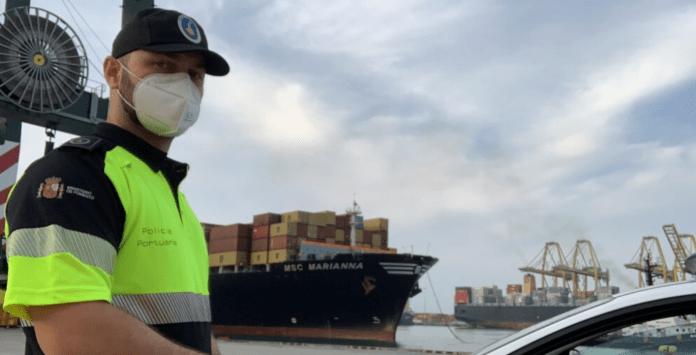Port Authority of Valencia’s initiative, Fundación Valenciaport has launched a new advisory service on the Covid-19 management in ports to provide port managers with a precise overview of the pandemic situation so that they know exactly what they are facing and how to act in the case of a possible spread of infectious diseases.
This technical assistance, which is addressed to port authorities, private port management companies, port and terminal operators, shipping agents, trade facilitation committees and unions, port security officers, stevedores, local authorities as well as representatives of the Ministries of Transport, Health and Commerce, will promote port resilience to pandemics and will ensure that medical supplies, food, fuel, raw materials and manufactured goods, as well as vital components for maintaining employment, continue to reach their intended destinations.
Some of the specific objectives of this service are to keep ports safe and operational during pandemics with actions such as improving pandemic response and decision, developing protocols and action plans, to implement standards, guidelines, metrics, tools and methodologies to facilitate the flow of goods and services.
Furthermore, the ValenicaPort Fundación consultancy service will provide stakeholders with innovative and user-friendly Information Technology (IT) tools to complement European Union (EU) systems, will give advice to ports and port community stakeholders on the use of remote technologies with a focus on teleworking positions and will design processes for the management of goods and the provisioning of protective equipment in emergency situations.
Last but not least, the service will improve people’s management by addressing their stress and emotional state in pandemic situations, according to a statement.
The technical assistance that lasts 25 weeks is structured in the three following phases: Diagnosis and analysis of the risk situation vs. port operations; definition of action and contingency plans; and proposal and implementation of ” best practices”.
In particular, during phase one, a diagnosis of the port or the organisation will be carried out to obtain as much information as possible on the changes and problems that arise in the face of a pandemic situation.
This diagnosis will first identify the essential operations, the groups involved in them, the
steps already taken to guarantee both the provision of these activities and the workers’ safety and then formulate what steps still need to be implemented and by whom, and establish a solid long-term strategy.
The second phase of the advisory service proposes that the port defines protocols based on the different health or economic risk situations. Organisations should carry out risk assessments taking into account all possible disruptions affecting cargoes, the flow of people and all stakeholders in the port community. Risk assessment leads to the design of action plans at all levels of the organisation, economic, operational and corporate.
The third phase emphasises on the risks a pandemic poses to the psychological and emotional health of workers, which are essential to maintain port operations.
Fundación Valenciaport, which is an applied research, innovation & training centre providing services to the port and logistics cluster, said the proposed solutions are aimed at reducing the potential impacts of pandemics on staff welfare, adapting working conditions accordingly, as well as addressing any problems related to the mental and emotional distress of workers.







